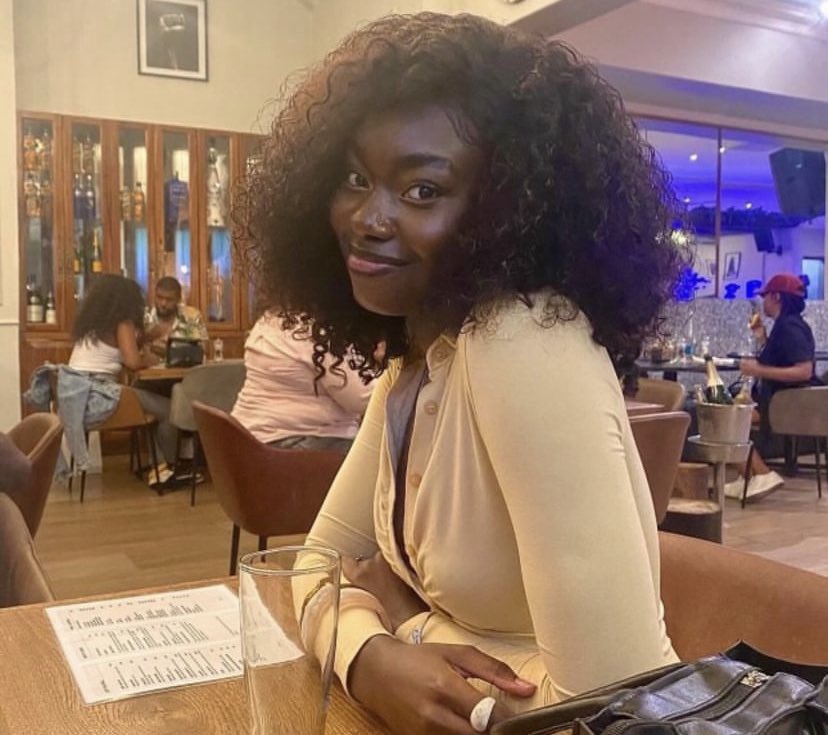SUDDEN DEATH OF ALEXANDRA LUMBAYI: HOW SAFE ARE AFRICAN STUDENTS ABROAD?

As a Nigerian student, I often discuss with my colleagues the idea of leaving the country. We talk about pursuing advanced degrees abroad and starting our lives there. Like other developing African countries, Nigeria has limited opportunities for young people like me. We want to use our education to earn a good living in a stable, safe environment. By “sane environment,” I mean one with a government that provides: water, shelter, healthcare, and security. Especially security. From July 2022 to June 2024, Nigeria had the highest rate of people interested in studying abroad at 6.5%. Ghana followed at 2.7%, then Egypt at 1.2%. It’s no surprise that Nigerians are the majority in this data analysis, as we face economic hardship and insecurity. “Japa” as we refer to immigration, seems to be the only viable way out of a crumbling society. For the average Nigerian, a student visa seems the best way out. It offers a good education and a chance to network in a safe, working society.
What if these first-world countries are not as secure as we presumed?
On the first week of October 2024, authorities found a body near the marina on Saint-Quentin Island, Canada. Authorities identified the body as 21-year-old Alexandra Martine Diengo Lumbayi, a Congolese student, She was reported missing earlier that week. Before her death, Lumbayi was a student at the Université du Québec à Trois-Rivières and was last seen on the island the afternoon of Oct. 2nd. The cause of Alexandra’s death is unknown. Some speculate it was not natural, as her body was dumped in a river. This tragic event raises concerns about the safety of African students in Canada. How was this evil done and who is responsible?
I spoke to a few Africans living and schooling abroad about their experience with safety so far. My first source (let’s call her Diane). She lives and works in Canada as a health worker. According to Diane, Canada is very safe. She feels more secure there than anywhere else. When I pried further, she replied, “I have never experienced any form of discrimination based on race or nationality since I’ve been here. Perhaps it’s because Canada is a country of mostly immigrants, leading to mutual respect. What I would say I have noticed is the high importance placed on referrals concerning job searches & hiring processes. If 5 people are interviewed for a role, the one with a referrer or sponsor from within the hiring company will most likely get the job. This is true regardless of race or nationality. However, recruitment companies exist to bridge that gap. So back to the question about experiencing discrimination since my being here, my simple answer would be no, I haven’t.”
A Nigerian, studying for a Master’s in London, said, “If I ranked these three countries, USA, Canada, and the UK, on security, Canada would be first, the UK second, and the U.S. last.” He rated his safety a 7. There are times when he feels safe and times when he feels vulnerable. “When I go to the gym at night, I get home by 1 a.m., sometimes 2 a.m. At that time, there are usually few activities happening. So, I’m always on guard. I don’t use my phone in public because phone snatching is common here. It happens daily, but just because I haven’t experienced it doesn’t mean it doesn’t happen. When I’m out, I grip my phone firmly, remembering my time in Lagos; during my stay in Nigeria, I never used my phone in public.” For him, phone snatching, an occurrence that was very likely in the suburbs of Lagos, where he comes from, was still usual in London, where he now lives. When I asked about the safety of his new home. He said, “Knife crime is an epidemic here. It’s a U.K. thing, not just in London, though the rate is higher here.” It’s primarily associated with gangs. Although we don’t have deaths caused by stray bullets, there are occasional killings resulting from mistaken identity. Once I’m out, I hold on to my I.D. I don’t mind that my school is an hour away. I’m always out with my I.D. I’d rate my sense of security here a 7 at most. Sometimes, people charge at you. You may not be their target. It may not even be violent. But fear arises from stories you’ve heard or seen. You’re always on alert. “I don’t listen to music outside. I can have my earbuds in, but I won’t play music while walking on the street. I want to be aware of my surroundings.” On his decision to study in London, I asked if safety was a factor. “My decision was also about safety. Before you travel as a legal immigrant, you must check their safety records. It’s imperative to do research. The U.K. is safe, but not as safe as some European countries. You can’t compare it to Finland, Cyprus, Denmark, or Norway for safety.”
Another Nigerian, studying in the U.K., said this about her safety: “My safety here is way better than in Nigeria. I sleep well and don’t fear robbers.” For someone who once lived in Nigeria, this foreign land seemed to provide peace of mind. The robbery back home stripped away her sense of security. On experiencing discrimination in the U.K., she said this about the police’s approach to protecting residents: “No, I haven’t experienced any form of discrimination. The people I have come across are quite friendly. However, some people have noted subtle discrimination. For example, on a bus, some white people won’t sit next to you if there’s a free seat beside you. They’ll only do it if it’s the last space left. They are quite proactive and responsive in protecting citizens and foreigners like me. It’s impressive compared to our motherland.”
In the U.S., gun violence is high. Its firearm homicide rate is nearly 25 times higher than that of other high-income countries. We often encounter murder cases that result from gang violence or stray bullets. Gun violence accounts for over 8 percent of deaths in the U.S. among those under age 20. A demographic that consists of Africans schooling in the country. For many Africans, studying abroad is an escape. It avoids our countries’ challenges, like insecurity, political instability, and economic hardship. In our quest for a saner clime, we often find that the grass may be green, but not as green as it appears from this side. Regardless of the situation, some may argue that it’s still better than the instability at home and the uncertainty that comes with it. Some students find better safety in host countries. Others face discrimination and threats to their lives. Acknowledging the disparities in safety and security among different countries of the world, let us not turn a blind eye to addressing them and demanding better, whether at home or abroad. The right to life, liberty, and security is a fundamental human right recognized as binding all over the world; it is only right that we should feel safe wherever we live.





